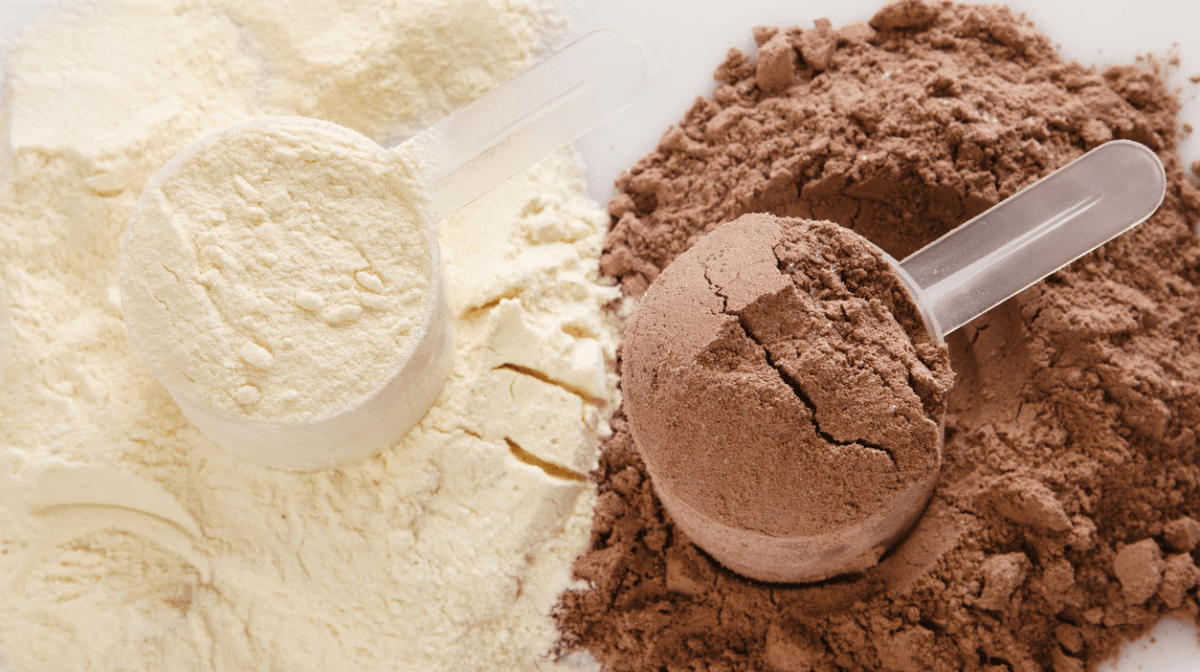
If you're on a quest to support your fitness goals, achieve that radiant glow, or simply supplement your diet, then you've undoubtedly encountered the nutritional powerhouses: collagen and whey protein. But what sets them apart?
To shed light on collagen protein vs. whey, we’ve put together a comprehensive guide that will delve into a few key distinctions between them, to help you understand their unique uses and benefits. Get ready to unravel the science behind these proteins and discover which one aligns with your needs.
What is Collagen?
Collagen is made up of amino acids that form a triple helix complex, the majority of which are glycine, proline and hydroxyproline. Often referred to as the body's structural glue, it’s thought to make up 30% of the protein in the body. It is most commonly recognised for enhancing the strength and structure of many components in the body, including your skin, muscles, ligaments and bones.
Not only can collagen provide the framework for our physical form, but it is also thought to boast an impressive array of benefits, such as:
- Supporting
skin elasticity
- Aiding
joint flexibility
- Providing you with the
amino acids to build keratin
, which may help support the health of your hair
As you age, your collagen production naturally declines, so it is advisable to incorporate collagen-rich foods like bone broth, leafy greens, oranges and eggs into your diet or consider supplements made from marine or bovine collagen to help support production.
What is Whey Protein?
Derived from the liquid part of milk, separated from curds during the cheese-making process, whey protein is commonly used in the fitness world. This is because it’s a complete protein, which means it contains all nine essential amino acids (EAAs) needed by the body to contribute towards muscle repair and growth. This includes the three branched chained amino acids (BCAAs) leucine, isoleucine and valine.
Along with that, the high absorption rate is another reason why it’s popular in the health and fitness community, as it is often consumed as a post-workout supplement to replenish the body's protein stores and promote recovery.
Whey protein may also help assist in achieving ketosis, if you’re following a restricted diet like keto. However, it might not be the best choice for you if you have particular dietary needs, such as being lactose intolerant, as it is a by-product of dairy.
Whether you're looking to aid your physical performance or enhance the amount of protein you’re getting in your diet, it’s a dynamic ally that may be able to support your needs.
Can you Take Collagen and Whey Protein Powder Together?
As they have distinct functions for your body, you can take them together. This can be as easy as combining both in a shake or incorporating one into your morning routine and the other at night or after a workout. If you find it difficult to get your recommended daily intake of protein (45g for women and 56g for men), including them both into your diet may also be helpful.
What’s the Difference Between Collagen Protein and Whey Protein?
When it comes to the difference between collagen and whey protein, it’s important to note that neither one is superior to the other, they simply serve different purposes.
As well as helping to maintain skin, muscles and bones, collagen is also thought to contribute to the youthful appearance of your skin by promoting elasticity and hydration. However, if you follow a pescatarian diet bovine collagen might not be the best choice for you, which is why we recommend marine collagen as an alternative.
On the other hand, whey protein is best for people looking for support during their fitness goals. This includes those looking to build or maintain their muscle mass or to contribute to post-exercise recovery.
In summary, the main difference between collagen protein and whey protein lies in their primary functions and benefits. The choice between the two depends on individual goals and needs, whether it's achieving supple skin or building and maintaining lean muscle mass.
So, if you’re looking for a supplement to support your skin health, opt for collagen. But if you’re working on fitness and improving recovery so you can achieve specific training goals, whey protein would be more beneficial.
Discover more health and wellbeing advice on our blog. From healthy post-workout recipes to supplement guides – we've got you covered!









